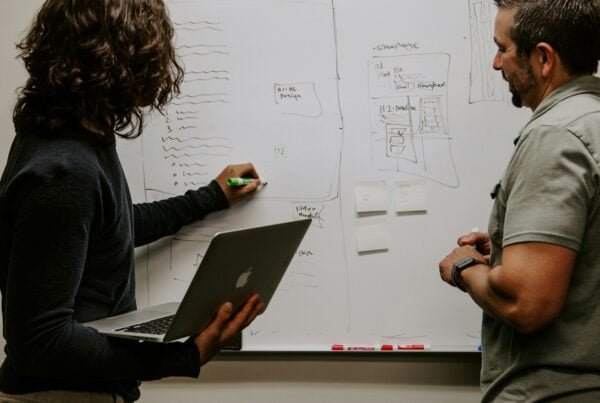Decision Fatigue Is Real: How to Streamline Choices and Protect Your Focus
Being a small business owner means making decisions all the time. Should you bid on that new project or focus on your current clients? What’s the best way to market your services this month? Even “What’s for lunch?” can feel like a daunting question after a long morning. If you’ve ever found yourself mentally exhausted by mid-afternoon or procrastinating on simple choices, you’re not alone. That draining mental burnout you feel from constant decision-making has a name: decision fatigue. And yes, it’s a very real challenge – but one you can manage with the right strategies and support.
What Is Decision Fatigue?
Decision fatigue is exactly what it sounds like – getting worn out by making too many decisions. Psychologists describe it as “the phenomenon that results from making too many decisions every day, ultimately leaving a person physically, mentally and emotionally depleted.” In other words, your brain has a limited supply of willpower and analytical energy. Every choice – big or small – takes a little mental fuel. Eventually, the tank runs low.
Think about how many choices you face daily. Research suggests the average adult makes over 30,000 decisions a day (yes, that includes deciding between coffee or tea in the morning!). Entrepreneurs juggle even more high-stakes decisions on top of those everyday choices. In fact, one study found that top business leaders must make an average of 139 significant decisions per week. It’s no wonder that the more choices you have to make, the harder each one becomes for your brain, which can lead to taking mental “shortcuts” – like making reckless snap judgments or simply avoiding decisions altogether.
Over time, decision fatigue can seriously impact both you and your business. When your mind is overloaded, your decision-making quality deteriorates. You might catch yourself defaulting to whatever’s easiest, delaying important choices, or feeling unable to make any decision at all. This isn’t just a personal productivity issue – it can affect your bottom line. A report in the Journal of Management Studies linked fatigued leadership to drops in productivity, revenue and profit. In other words, if you’re burnt out and indecisive, your business can suffer alongside you.
Why Entrepreneurs Are Especially Prone to Decision Fatigue
Anyone can experience decision fatigue, but entrepreneurs and small business owners are particularly vulnerable. Why? Because you’re wearing all the hats. One minute you’re deciding on a marketing strategy, the next you’re reviewing finances, then a staff issue comes up – and you still need to choose which vendor to go with for new supplies. The sheer volume and variety of choices in running a business is massive.
A recent Canadian study on entrepreneurs’ mental health found that fatigue and high stress are extremely common among business owners. In a national survey by the Canadian Mental Health Association (supported by BDC), two-thirds (62%) of entrepreneurs reported feeling depressed at least once a week. Nearly half said mental health struggles (like chronic stress or exhaustion) interfered with their ability to work. While “depression” isn’t the same as decision fatigue, these findings show how cognitive overload and constant pressure are taking a toll on entrepreneurs in Canada. When you’re mentally drained or in a low mood, even small decisions can feel herculean.
So, how does decision fatigue show up in day-to-day business life? It often masquerades as procrastination, burnout, or plain old brain fog. The mental work of making nonstop decisions can leave you so tapped out that you start putting off tasks you’d normally handle, or you make careless choices you later regret. Depending on the person, decision fatigue might spur endless procrastination, unusually poor choices, or a loss of willpower and motivation. You might feel overwhelmed or irritated for no clear reason – as if your mind is hitting a wall.
Entrepreneurs in the trenches have described it well. For example, Canadian startup founder Nadia Ladak recalls hitting a wall after months of jam-packed business travel and pitches. “I woke up feeling exhausted no matter how much sleep I got. I felt anxious and little decisions like what to wear or eat became so draining,” she says. Nadia realized that in order to run her business effectively, she had to take care of herself first. “I quickly learned that … you need to develop sustainable habits and not be afraid to speak to someone about what you’re going through,” she explains. Her story is a familiar one: when you’re experiencing decision fatigue, trivial choices (like lunch or outfit) can push you over the edge, and it’s a clear sign that something needs to change.
Tips to Streamline Choices and Protect Your Focus
The good news is that decision fatigue is manageable. You can’t eliminate every decision (running a business will always involve choices), but you can lighten the cognitive load and give your brain the support it needs. Here are some practical, actionable strategies to reduce decision overload and improve your focus:
Simplify and automate routine choices. Save your mental energy for the important stuff by putting everyday decisions on autopilot. For example, create a daily routine so your morning goes the same way each day – wake up at the same time, have a go-to breakfast, wear one of a few “standard” outfits. By sticking to set patterns, you’ll spend less brainpower figuring out trivial things. (It’s no coincidence that leaders like Barack Obama and Mark Zuckerberg famously limited their wardrobe options to avoid decision fatigue). Use tools to automate wherever possible as well – set up automatic bill payments, use apps to schedule social media posts, pre-plan your weekly meals. Fewer small decisions mean more gas in the tank for the big ones.
Prioritize decisions and tackle the important ones first. All decisions are not created equal. Start by identifying which choices truly require your attention and will have a big impact on your business. Focus on those priority decisions when your mind is freshest (for many, that’s early in the day). For less critical choices, consider setting a time limit or deadline so you don’t overthink them. Psychologists note that decision fatigue often hits hardest at the tail-end of long projects or long days, when you’re already spent. By spacing out your decision-making – and handling high-priority items before your energy dips – you’ll make better choices and feel less overwhelmed.
Delegate and involve others in decisions. You don’t have to make every decision solo! One surefire way to relieve cognitive load is to share the decision-making responsibility. Look at your tasks and ask: which decisions truly require my input, and which can I entrust to someone else on my team? Great leaders rarely make every decision on their own. Delegating not only frees your time and brain-space, but also empowers your employees or partners. If you’re a one-person operation, you can still get others involved by bouncing ideas off a mentor, business partner, or even a fellow entrepreneur. Sometimes an outside perspective helps clarify a choice that felt paralyzing in your own head. As one business coach put it, involving others can provide new perspectives and “reduce the burden” on you when you’re stuck.
Build decision-friendly habits and routines. Good self-care is not a luxury for entrepreneurs – it’s a necessity, especially when it comes to mental clarity. Prioritize habits that keep your brain in top shape: regular exercise, adequate sleep, short breaks during the workday, and healthy nutrition. Think of these habits as “fuel” for your decision-making muscle. Research shows that getting a solid 8+ hours of sleep, for instance, dramatically improves cognitive function and emotional resilience, which you need for sound decisions. It’s also wise to establish rules or principles for yourself to reduce decision angst. For example, adopt an “OK is okay” mindset for non-critical tasks – not everything needs to be perfect. When you give yourself permission to be good enough, you resist the trap of overthinking every little decision.
Use tools and frameworks to reduce mental load. When faced with complex choices, try using decision-making frameworks to guide you instead of starting from scratch each time. Something as simple as a pros-and-cons list or a more formal decision matrix can structure your thinking and take some pressure off your brain. The idea is to externalize the decision process: get the factors down on paper or a screen, so you’re not juggling it all in your head. Also, consider setting aside specific “decision time” blocks in your schedule (a technique called time-blocking). For example, you might dedicate 3–4 pm to review and decide on operational questions. Knowing you have a slot to focus on decisions can prevent mental clutter throughout the day, since you won’t be trying to decide everything on the fly.
Above all, remember that you don’t have to tough this out alone. Many entrepreneurs find it helpful to talk through decisions with a coach or advisor. A good business coach, for instance, won’t tell you what to do, but they will ask the right questions and help you see patterns in where you’re getting bogged down. They can also hold you accountable to follow through, which takes some pressure off your willpower. If you feel your decision-making ability flagging, consider reaching out for this kind of support – it’s not a weakness, it’s a strategy to stay strong.
Final Thoughts! You’re Not Alone
Feeling overwhelmed by constant choices does not mean you’re a “bad” entrepreneur. It means you’re human. We tend to celebrate small business owners as tireless superheroes, but the reality is everyone has a breaking point. As Fardous Hosseiny of the Canadian Mental Health Association wisely noted, we need to shift the image of entrepreneurs from the “tireless innovator” or “lone visionary” to one that allows them to be vulnerable and ask for help when needed. In other words: you don’t have to carry the weight of every decision on your shoulders. It’s okay to admit you’re fatigued and to seek assistance.
In conclusion, take heart: decision fatigue may be real, but it’s also manageable. By streamlining your choices, building supportive routines, and leaning on help from others when you need it, you can protect your focus and energy for what truly matters – growing your business and enjoying the journey. Every entrepreneur faces moments of overload; the smart ones learn to recognize it and take action. You’ve got this, and you’re not alone on the path. With a few intentional changes (and maybe a helping hand), you can keep decision fatigue at bay and continue making confident, clear-headed decisions as a business owner. Here’s to working smarter, not just harder, and keeping your entrepreneurial spark shining bright!
References
Canadian Mental Health Association & BDC – Entrepreneur Mental Health Survey – bc.cmha.cabc.cmha.cabc.cmha.ca
Entrepreneur – “30,000 Decisions a Day” (M. Nowicka Mook, 2025) – entrepreneur.comentrepreneur.com
Journal of Management Studies via Entrepreneur – Impact of Fatigued Leadership – entrepreneur.com
Escalon Business Services – “When you’re an entrepreneur and decision fatigue is nipping at your heels” – escalon.servicesescalon.servicesescalon.services
Nadia Ladak (CEO, Marlow) via BDC/Unsinkable interview – bdc.ca




